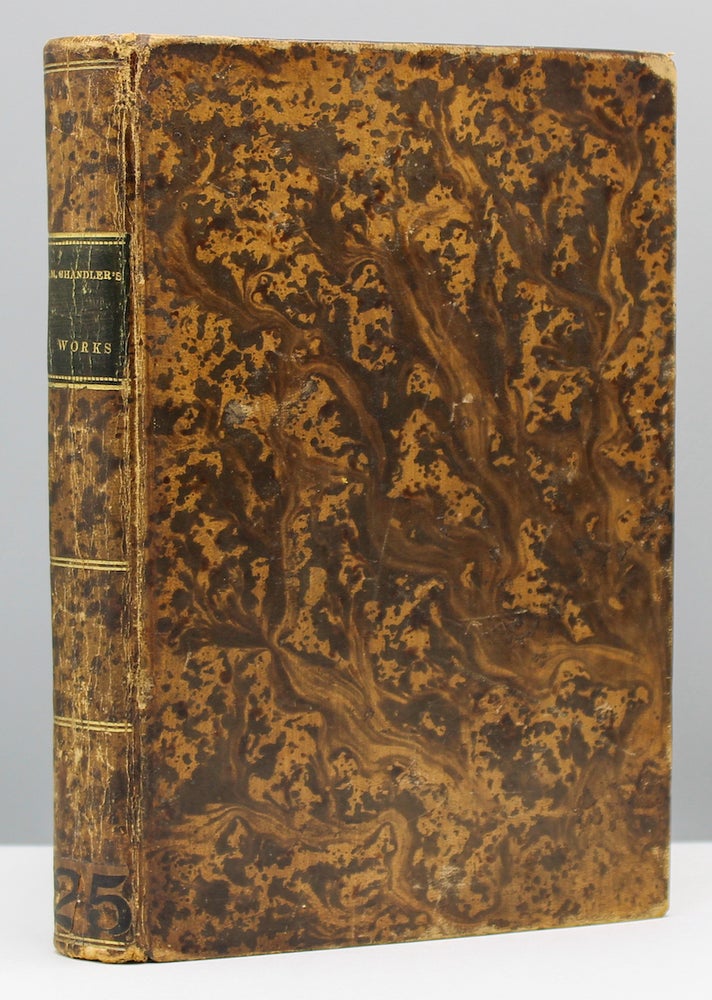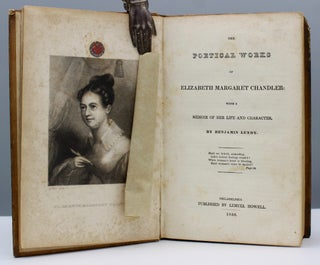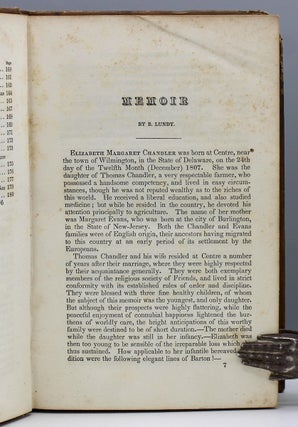The Poetical Works...with a memoir of her life and character, by Benjamin Lundy.
Philadelphia: Lemuel Howell, 1836. First collected edition. The Poetical Works of Elizabeth Margaret Chandler and Essays, Philanthropic and Moral were also issued separately. Later printings of the collected edition include a notice that “the publisher soon ascertained…that the disposition to encourage [The Poetical Works] far exceeded his calculations, and in consequence he concluded to have it stereotyped, and to add a collection of the author’s prose, amounting to more than one hundred pages.” That notice is not included in the present copy. Essays, Philanthropic and Moral lacks the frontispiece when issued separately. Engraved frontisportrait in first volume. Engraved frontispiece of an enslaved man in second. Title of volume two: “Essays, Philanthropic and Moral…principally relating to the abolition of slavery in America” with the same imprint as above. Extremities somewhat rubbed and a bit of wear to corner of lower board. Some foxing throughout. Ink ownership signature, dated 1837, to front flyleaf. A very good, tight copy. Contemporary tree calf with green morocco label and gilt rule on spine. Two volumes in one, twelvemo. 180; 120 pp. Item #16919
Elizabeth Margaret Chandler (1807 – 1834) was an author and the first woman writer in America to make the abolition of slavery her principal theme (Michigan Women’s Hall of Fame). After reading Chandler’s popular poem “The Slave-Ship,” abolitionist and publisher Benjamin Lundy invited her to write for his periodical The Genius of Universal Emancipation, the most influential antislavery journal behind William Lloyd Garrison’s The Liberator. Chandler also developed the famous image of a kneeling enslaved woman with the slogan “Am I Not a Woman and a Sister,” which was developed from the seal of the Society for the Abolition of the Slave Trade. “Chandler’s poetry was directed particularly toward the sympathies of her largely female audience, often focusing on the tragedy of slave women torn from their husbands and children. In reply to those who argued that women lacked the power to abolish slavery, Chandler countered that, as mothers, women were in a position ‘to give the first bent to the minds of those, who at some future day are to be their country’s counselors,’” (Michigan Women’s Hall of Fame website.).
American Imprints 36587 and 36588; Afro-Americana, 2155; Dumond, Antislavery, p. 35.
Price: $600.00





